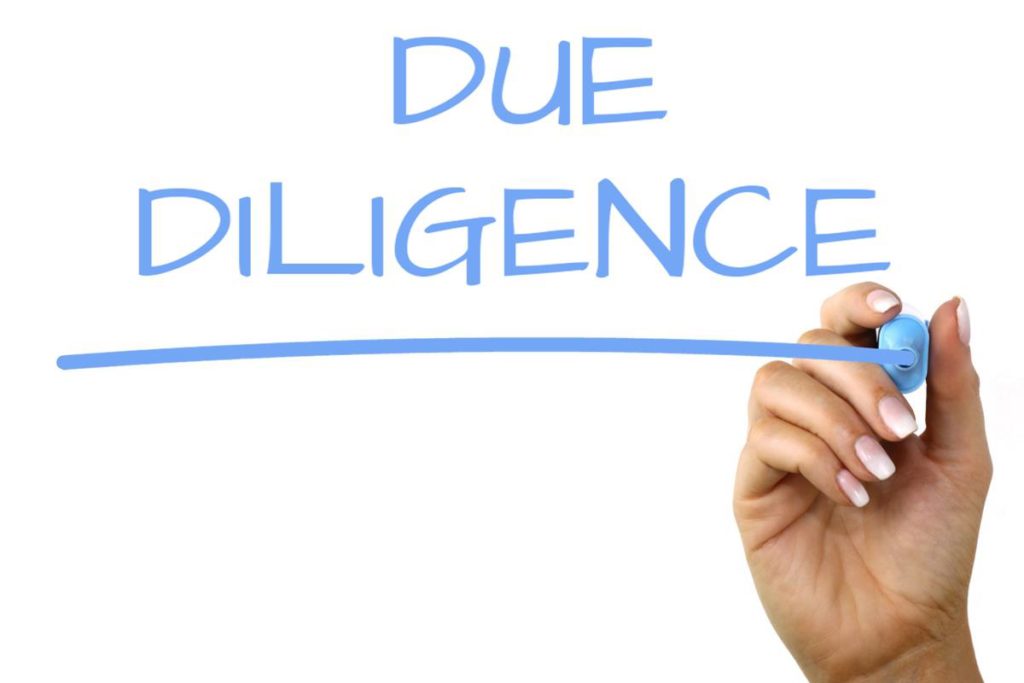The Importance of Corporate Due Diligence
By Steven Czyrny
“Trust but verify” is a phrase that President Reagan once used when he was heading into high-level discussions with the Soviet Union.
Today, the advice works perfectly for anyone entering into any kind of business partnership. It’s a fine idea to get excited about any kind of joint project or shared arrangement. However, smart business people shouldn’t forget to perform their due diligence: this basically means putting in extra effort to look for potential pitfalls that may not be initially discussed or noticed during the initial introductions.
Due diligence can reveal a lot of key information, including financial details– if company pretends to be much more financially solvent than they’re telling you. Or it could also indicate cases of outright fraud. An investigative firm can also search for any litigation history for a company or individual, as well as any derogatory media and press mentions to alert you if the party/parties have any past issues that could be “red flags.”
It can also be useful at the human resource level to make sure a candidate is truthful in his or her application or interview– verifying past employment, education credentials, etc.
There’s plenty of conventional wisdom about not looking gift horses in the mouth, or instinctively not to automatically trust anything that sounds too good to be true. At the same time, our human nature also seems to like to give people the benefit of the doubt and hope they’re always truthful.
The due diligence process can potentially turn up all sorts of findings. Some may not necessarily be deal-breakers but at least the information can help a company make a more informed and accurate decision. It also has the potential to cause both parties to re-enter negotiations. Due diligence could have revealed information that could affect the partnership.
Due diligence can provide guidance in several ways:
- Let company officials or investors feel more comfortable and secure about a decision or pursuing a course of action.
- Avoid legal liability and even public ridicule if an under-examined partnership falls apart in the future or a job candidate who didn’t have his or her background thoroughly checked is found to have concealed the truth.
- Confirm the actual value of something, especially in real estate transactions or intellectual property matters. This can let the purchaser know if the price for this item was under-valued or overvalued.
- Discover any undisclosed corporate information such as active liens, or pending investigations or lawsuits.
- Provides a ‘cooling-down period’ of sorts to make sure no one rushes into a decision.
- Makes sure all details in a contract are correct, including language, points or any other terms.
- Encourages communication between parties if something suspicious is found.
Who’s the best person to perform due diligence? Unless a company is large enough to have its own in-house investigators, research staff or employees that can spend extended time on this level of data gathering, it makes more sense to bring in an objective outside company that specializes in these types of examinations.
Corporate due diligence firms for instance, have the resources and experience on gathering the thorough information to give you peace of mind on a potential new employee (via employment screening) or potential new business partners. This research includes accessing a variety of databases along with other investigatory tools that a private investigator has at their disposal.
Along with investigating a certain company or individual, consulting firms can also perform other research as needed, which can provide detailed information about possible partners, competitors, the local industry, even national peers.
Overall, due diligence is a prudent action to use when trying to learn more about a business or individual. Taking the time to verify or learn of key details of potential business partners or employees, can save you time and money.


Very interesting– makes sense spending the money to research partners though, if your reputation and finances are at stake